Subscribe
Send feedback
Topics
- active learning (18)
- research assignments (6)
- libraries (1)
- literature-based learning (2)
- multimedia (5)
- museums (6)
- object learning (7)
- online learning (5)
- peer instruction (10)
- storytelling (2)
- learning management system (2)
- syllabus design (3)
- teaching empathy (3)
- teaching fellows (1)
- lecture (3)
- learning goals (8)
- assessment (6)
- data (3)
- backward design (3)
- blended approaches (12)
- case-based learning (8)
- classroom contracts (7)
- classrooms and space (3)
- collaborative learning (27)
- community events (1)
- course transformation (7)
- devices (3)
- learning by making (5)
- discussion (24)
- engaged scholarship (4)
- experiential learning (16)
- feedback (18)
- group work (8)
- guest speakers (7)
- interdisciplinary (6)
- leadership (3)
Copyright © 2024 The President and Fellows of Harvard College | Privacy | Accessibility | Digital Accessibility | Report Copyright Infringement

 Sheila Heen, Thaddeus R. Beal Professor of Practice and a Deputy Director of the Harvard Negotiation Project at Harvard Law School (HLS), specializes in navigating challenging negotiations where emotions, relationships, and legal components are on the line. Heen is responsible for and team-teaches in Harvard Law School’s three Negotiation Workshop courses, with enrollment of over 400 law students and cross-registrants annually. The workshops are a primary way that students meet the new HLS graduation requirement to take a course that teaches negotiation, relationship management, and leadership skills. Over the last 40 years, the Negotiation Workshop has developed a self-reflective and experiential pedagogy that challenges faculty to walk their own talk as they both teach and learn alongside students. In the classroom, Heen and her faculty colleagues encourage students to reflect on their learning experiences, understand their decision-making processes, and apply theoretical knowledge in practical contexts to enhance their negotiation skills.
Sheila Heen, Thaddeus R. Beal Professor of Practice and a Deputy Director of the Harvard Negotiation Project at Harvard Law School (HLS), specializes in navigating challenging negotiations where emotions, relationships, and legal components are on the line. Heen is responsible for and team-teaches in Harvard Law School’s three Negotiation Workshop courses, with enrollment of over 400 law students and cross-registrants annually. The workshops are a primary way that students meet the new HLS graduation requirement to take a course that teaches negotiation, relationship management, and leadership skills. Over the last 40 years, the Negotiation Workshop has developed a self-reflective and experiential pedagogy that challenges faculty to walk their own talk as they both teach and learn alongside students. In the classroom, Heen and her faculty colleagues encourage students to reflect on their learning experiences, understand their decision-making processes, and apply theoretical knowledge in practical contexts to enhance their negotiation skills.  Rebecca Nesson, Dean for Academic Programs, SEAS, and Charles R. Nesson, William F. Weld Professor of Law at Harvard Law School, Founder of the Berkman Klein Center for Internet & Society, and Principal Investigator of BKC’s
Rebecca Nesson, Dean for Academic Programs, SEAS, and Charles R. Nesson, William F. Weld Professor of Law at Harvard Law School, Founder of the Berkman Klein Center for Internet & Society, and Principal Investigator of BKC’s 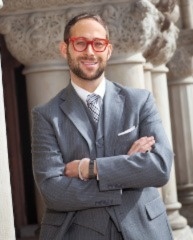 I. Glenn Cohen, James A. Attwood and Leslie Williams Professor of Law, Deputy Dean at Harvard Law, and Faculty Director of the Petrie-Flom Center for Health Law Policy, Biotechnology & Bioethics, teaches courses on health law and civil procedure. As Deputy Dean, Professor Cohen instituted a new pre-orientation program for law students,
I. Glenn Cohen, James A. Attwood and Leslie Williams Professor of Law, Deputy Dean at Harvard Law, and Faculty Director of the Petrie-Flom Center for Health Law Policy, Biotechnology & Bioethics, teaches courses on health law and civil procedure. As Deputy Dean, Professor Cohen instituted a new pre-orientation program for law students, 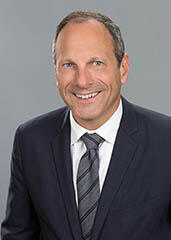 Scott Westfahl, Professor of Practice at Harvard Law School, intentionally develops students’ team-based collaboration skills in his law school courses on leadership fundamentals and innovation. Throughout the semester, student groups learn, reflect, and act on what makes a great team in real-time. Westfahl begins with a focus on the academic frameworks for successful teams. Then a series of scaffolded activities and assignments allow students to collaboratively reflect on what they want as a team, consider over time what is working and what isn’t, and work on projects throughout the semester. At the end of his
Scott Westfahl, Professor of Practice at Harvard Law School, intentionally develops students’ team-based collaboration skills in his law school courses on leadership fundamentals and innovation. Throughout the semester, student groups learn, reflect, and act on what makes a great team in real-time. Westfahl begins with a focus on the academic frameworks for successful teams. Then a series of scaffolded activities and assignments allow students to collaboratively reflect on what they want as a team, consider over time what is working and what isn’t, and work on projects throughout the semester. At the end of his 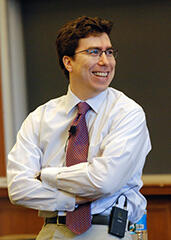 Jonathan Zittrain, George Bemis Professor of International Law, adapted his digital governance course to incorporate what everyone was really focused on in mid-spring of 2020: the COVID-19 pandemic. Instead of “compartmentalizing” between class and crisis, he reworked the syllabus to respond to students’ needs and evolving experiences.
Jonathan Zittrain, George Bemis Professor of International Law, adapted his digital governance course to incorporate what everyone was really focused on in mid-spring of 2020: the COVID-19 pandemic. Instead of “compartmentalizing” between class and crisis, he reworked the syllabus to respond to students’ needs and evolving experiences. 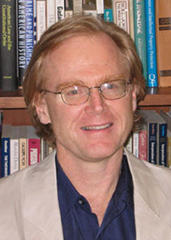 When William Fisher, WilmerHale Professor of Intellectual Property Law, was approached to create an online course version of his Harvard Law School
When William Fisher, WilmerHale Professor of Intellectual Property Law, was approached to create an online course version of his Harvard Law School 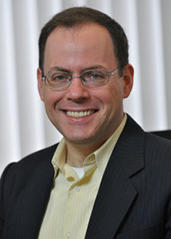
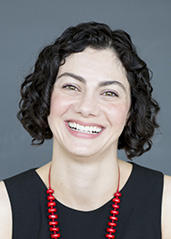 Tyler Giannini and Susan Farbstein, Clinical Professors of Law, pull back the curtain on pedagogy for students in the seminar
Tyler Giannini and Susan Farbstein, Clinical Professors of Law, pull back the curtain on pedagogy for students in the seminar 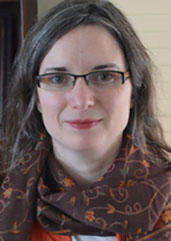 Elizabeth Papp Kamali, Assistant Professor of Law, wants to ensure that students contribute consistently throughout the semester: "A student can get into a rut if they don't participate in those first few classes, and it can be very difficult to break that cycle." She uses different models to encourage participation—for example, the Socratic method in larger introductory courses and student-led discussion in smaller seminars—often asking students to adopt non-mainstream arguments.
Elizabeth Papp Kamali, Assistant Professor of Law, wants to ensure that students contribute consistently throughout the semester: "A student can get into a rut if they don't participate in those first few classes, and it can be very difficult to break that cycle." She uses different models to encourage participation—for example, the Socratic method in larger introductory courses and student-led discussion in smaller seminars—often asking students to adopt non-mainstream arguments.
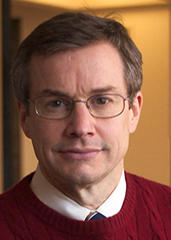 Howell Jackson, James S. Reid Jr. Professor of Law, experiments with end-of-semester exams and writing assignments to create opportunities for meaningful, formative feedback through skills practice, reflection, and peer collaboration.
Howell Jackson, James S. Reid Jr. Professor of Law, experiments with end-of-semester exams and writing assignments to create opportunities for meaningful, formative feedback through skills practice, reflection, and peer collaboration.
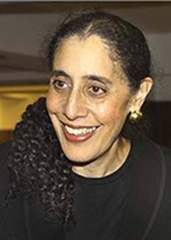 Lani Guinier, Bennett Boskey Professor of Law, incorporates collaboration into her late semester assignments in order to provide opportunities for self-improvement and self-reflection. “By sharing perspectives and differing approaches, classmates can in some cases teach their students more effectively than the professor.”...
Lani Guinier, Bennett Boskey Professor of Law, incorporates collaboration into her late semester assignments in order to provide opportunities for self-improvement and self-reflection. “By sharing perspectives and differing approaches, classmates can in some cases teach their students more effectively than the professor.”... 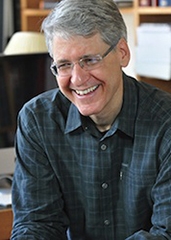 Jon Hanson, Alfred Smart Professor of Law, saw an opportunity to improve learning by putting students in the driver's seat. Along with Jacob Lipton, JD ’14, he developed
Jon Hanson, Alfred Smart Professor of Law, saw an opportunity to improve learning by putting students in the driver's seat. Along with Jacob Lipton, JD ’14, he developed